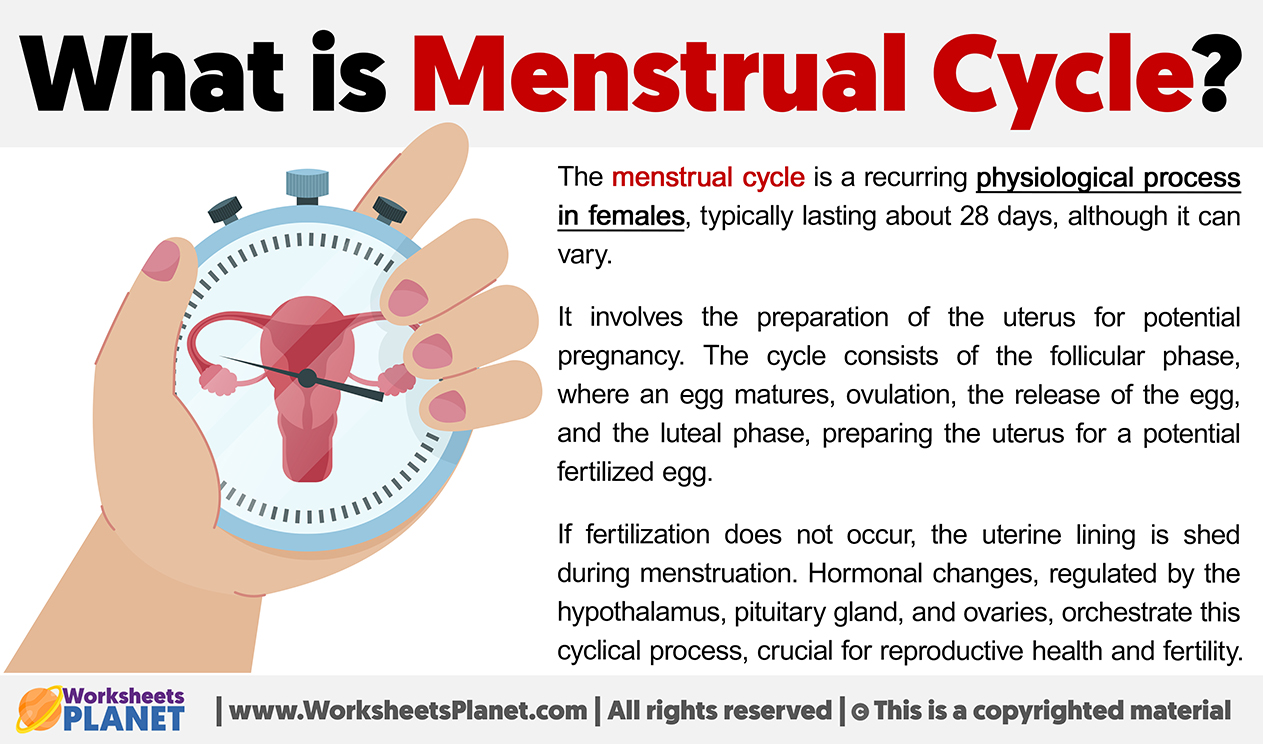The menstrual cycle is a recurring physiological process in females, typically lasting about 28 days, although it can vary.
It involves the preparation of the uterus for potential pregnancy. The cycle consists of the follicular phase, where an egg matures, ovulation, the release of the egg, and the luteal phase, preparing the uterus for a potential fertilized egg.
If fertilization does not occur, the uterine lining is shed during menstruation. Hormonal changes, regulated by the hypothalamus, pituitary gland, and ovaries, orchestrate this cyclical process, crucial for reproductive health and fertility.


